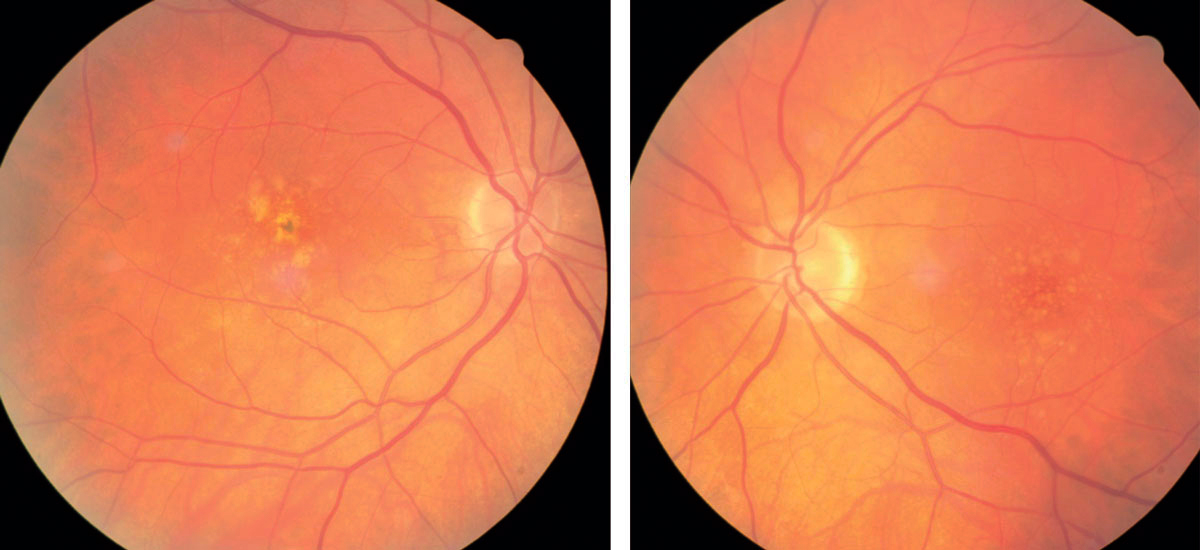 |
| Supplements with lutein/zeaxanthin effectively reduced AMD and cataract risk in older adults in this study. Photo: Jeffry Gerson, OD. Click image to enlarge. |
The first Age-Related Eye Disease Study (AREDS), which investigated whether nutritional supplements can prevent or slow the development of cataracts or age-related macular degeneration (AMD), found that beta carotene may lead to an increased risk of lung cancer. For this reason, the nutrient was replaced with lutein/zeaxanthin for half of the patients of the AREDS2 study. Researchers recently performed a follow-up study of participants from the trial to determine the long-term outcomes of using beta carotene vs. lutein/zeaxanthin. They determined that while the former nearly doubled a patient’s risk of developing lung cancer, no such risk existed from taking lutein/zeaxanthin. In addition, they found that the nutrient also seemed to be superior in preventing or slowing late AMD progression.
The team performed a five-year epidemiologic follow-up study of the AREDS2 cohort, including participants who had bilateral or unilateral intermediate AMD for at least five years after the clinical trial. During the trial, participants had been randomly assigned to receive supplements with lutein/zeaxanthin and/or ω-3 fatty acids or placebo and secondarily to no beta carotene vs. beta carotene and low vs. high doses of zinc. In the follow-up study, all participants received AREDS2 supplements with lutein/zeaxanthin, vitamins C and E and zinc plus copper.
A total of 6,351 eyes of 3,882 participants were included with a mean age of 72. By the end of the 10-year study period, 117 participants had developed lung cancer and 48% of study eyes had developed late AMD. At 10 years, the researchers found that the odds ratio of having lung cancer was higher for those randomly assigned to beta carotene compared with those taking lutein/zeaxanthin (1.82 vs. 1.15).
Lutein/zeaxanthin also appeared to have more of a protective effect than beta carotene in the progression of late AMD. The researchers noted, “The hazard ratio for progression to late AMD comparing lutein/zeaxanthin with no lutein/zeaxanthin was 0.91 and comparing ω-3 fatty acids with no ω-3 fatty acids was 1.01.” The following hazard ratios for late AMD progression were also observed: lutein/zeaxanthin vs. beta carotene, 0.85; low vs. high zinc, 1.04; no beta carotene vs. beta carotene, 1.04.
“Lutein/zeaxanthin may not only be safer in terms of lung cancer risk but may also provide an incremental increase in the prevention of progression to late AMD,” the researchers concluded in their study. “The totality of information, both clinical (lung cancer and AMD outcomes) and laboratory, provides evidence for using lutein/zeaxanthin rather than beta carotene in a supplement designed to slow disease progression in patients with intermediate or late AMD in one eye.”
Chew EY, Clemons TE, Agrón E, et al. Long-term outcomes of adding lutein/zeaxanthin and ω-3 fatty acids to the areds supplements on age-related macular degeneration progression. JAMA Ophthalmol. June 2, 2022. [Epub ahead of print]. |

